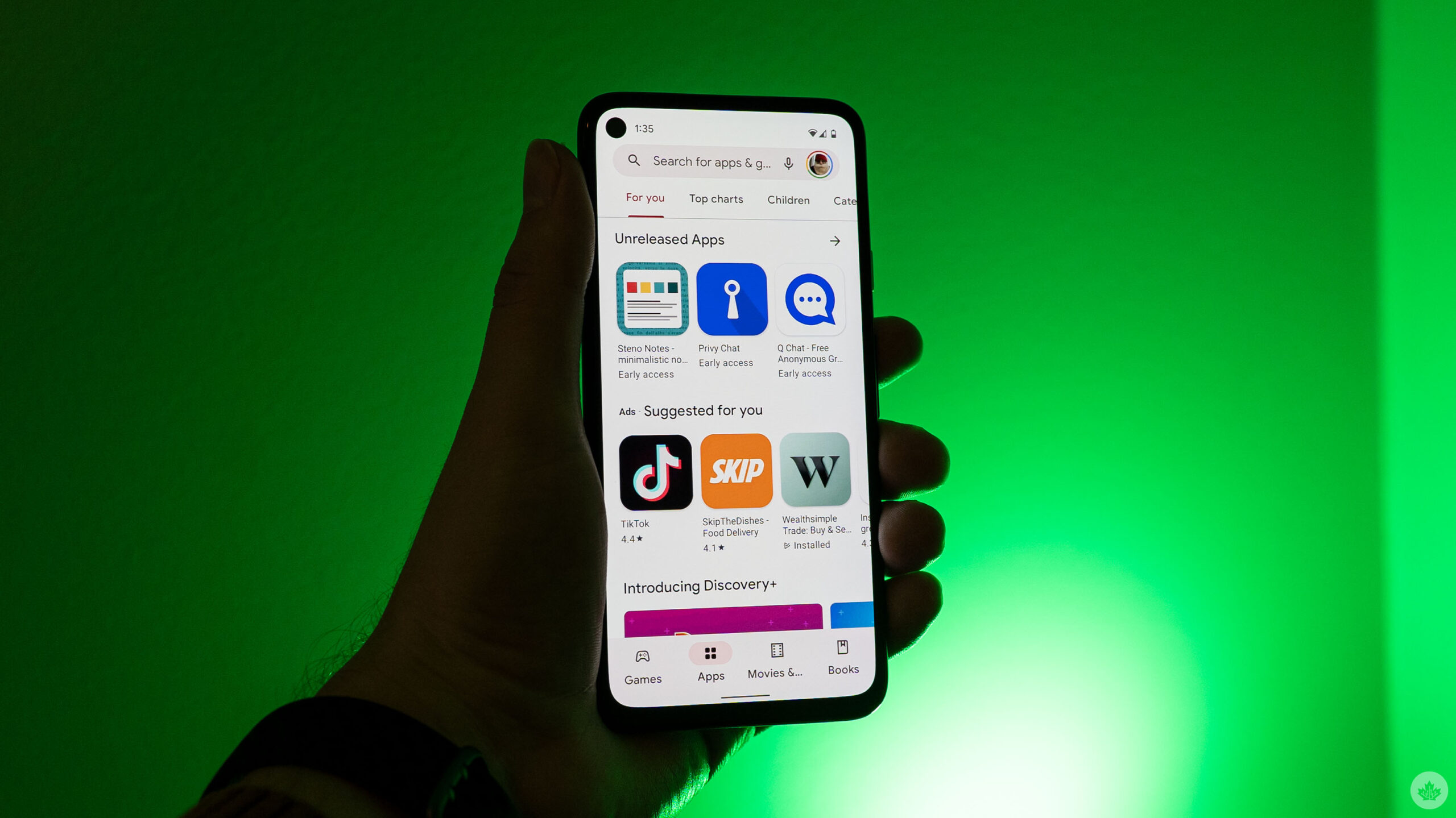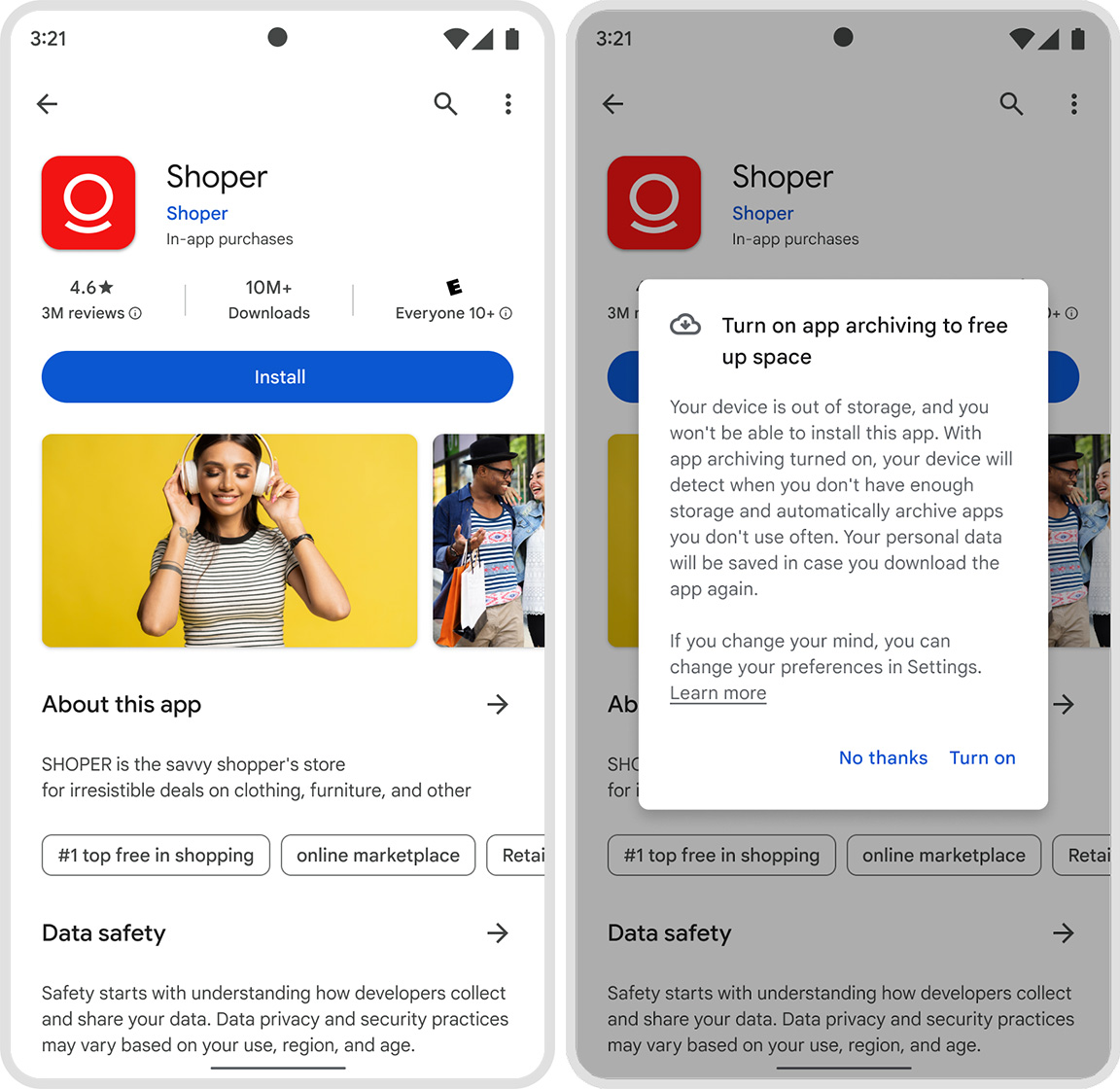
Google will bring a new ‘auto-archive’ feature to Android that will let users “automatically free up to nearly 60 percent of an app’s storage space” to make room for new apps.
In a post on the Android Developers Blog (via Android Authority), Google explained that one of the main reasons people uninstall apps is to free up space. The company hopes that auto-archive can help reduce unnecessary app uninstalls by removing parts of infrequently used apps instead.
The feature works by partly removing an app to free up space. Auto-archive doesn’t get rid of the icon or users’ data, however. That way, when someone wants to resume using an archived app, all they need is to redownload some of the files from the Play Store (assuming the app is still available) and they can pick up right where they left off.
People will need to opt-in to use auto-archive. Google describes the process in the blog post, which goes something like this: when users attempt to install a new app, but there isn’t enough space, Android will show a pop-up prompting them to turn on auto-archive. Once turned on, Android will start auto-archiving unused apps to free up space for the new app.

Android’s app auto-archive feature | Image credit: Google
Based on images shared by Google in the blog post, it seems like there will be an option to turn off auto-archive in the Settings menu, but it’s not clear if there will be a way to manually enable the feature without the pop-up. My Pixel 7 doesn’t appear to have any auto-archive settings or options, and with only about half my storage used, I don’t think I’ll be seeing auto-archive any time soon. That said, it’s also not clear if auto-archive is available now or coming with a future update.
It’s also worth noting that apps need to use App Bundles to be eligible for auto-archive. App Bundles is a feature that lets the Play Store generate optimized APKs for each device, which means only the code and resources needed for a specific device get downloaded. However, that shouldn’t be a huge problem for most developers, given Google has required that new apps use App Bundles since August 2021.
Source: Android Developers Blog Via: Android Authority
MobileSyrup may earn a commission from purchases made via our links, which helps fund the journalism we provide free on our website. These links do not influence our editorial content. Support us here.


